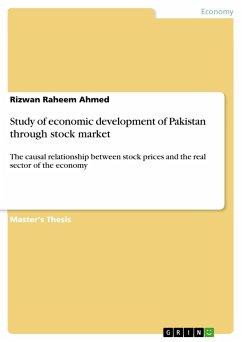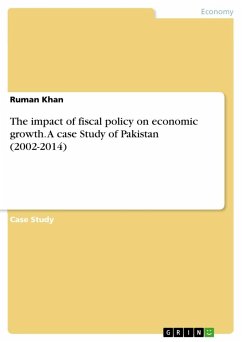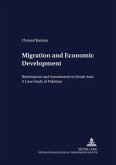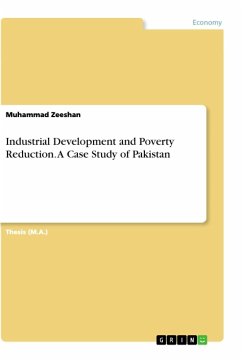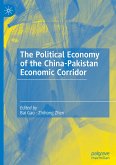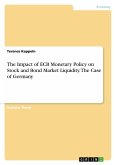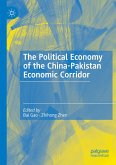Master's Thesis from the year 2007 in the subject Economics - Finance, , course: Masters of Philosophy (M.Phil.), language: English, abstract: The purpose of the research is to examine the causal relationship between stock prices and the variables representing the real sector of the economy like read GDP, and real investment spending, in Pakistan. Researcher has used annual data from December 1980 to June 2007, to examine the stochastic properties of the variables, and has taken care of the expected shift in the series due to the start of the liberalization program in the early 1990s. State Bank General Price Index (SBGPI) with base 1980-81 is used for stock prices whereas for real variables GDP, and investment, at constant prices of 1980-81 were used. The descriptive statistics indicate a much higher expansion in stock prices relative to real variables. However, the stock prices also experienced much higher volatility during the sample period whereas the real variables seem to be stable. The correlation analysis shows low correlations between stock prices and real variables. However, there is evidence of significant increase in these correlations in the post reform period suggesting that these reforms resulted in significant improvement in the behavior of stock market and its linkages to the economy. In the formal investigation, the co-integration regressions indicate the presence of a long run relationship between stock prices and real variables. Regarding the cause and effect relationship the error correction model suggest a unidirectional causality from the real variables to stock prices implying that in Pakistan fluctuations in real sector cause changes in stock prices. The analysis does not verify the evidence of improvement in the linkages of stock market to the economy, which is indicated by the correlation analysis. These results have not changed by the incorporation of the expected shift in the variables resulting from the liberalization measures. The findings suggest that the stock market in Pakistan is still not that developed to play its due role in influencing the real sector of the economy. It can be implied, however, that the government can use the real sector to influence the stock market. An important implication of the findings is that the stock market in Pakistan cannot be characterized as the leading indicator of the economic activity. The study clearly indicates that it lags economic activity. It seems that the phenomenal growth in stock market variables like market capitalization, trading volume, the market index, etc. do not seem to influence the economy of Pakistan.
Hinweis: Dieser Artikel kann nur an eine deutsche Lieferadresse ausgeliefert werden.
Hinweis: Dieser Artikel kann nur an eine deutsche Lieferadresse ausgeliefert werden.

